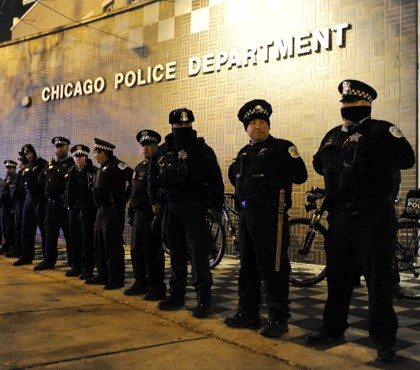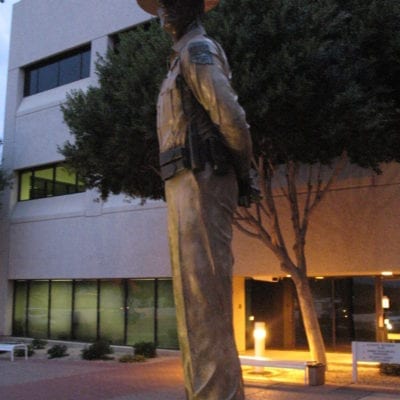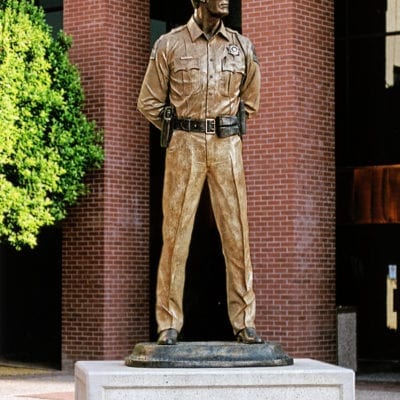By Jeremy Gorner Chicago Tribune
CHICAGO — Black Lives Matter and a coalition of other community groups have won a seat at the table as the city of Chicago and the state attorney general’s office hash out a consent decree that would guide reforms to the troubled Chicago Police Department.
The agreement comes on the heels of three lawsuits filed last year against the city, urging Mayor Rahm Emanuel to allow a federal judge to oversee an overhaul of the Police Department in the wake of a U.S. Department of Justice report that found the department was deficient in training and supervision and prone to excessive force, especially against minorities.
Word of the agreement came Tuesday evening as news organizations devoted their resources to covering the primary election certain to dominate headlines.
The community groups, a coalition of legal firms and the ACLU of Illinois — all plaintiffs in the pending federal lawsuits — hailed the 10-page agreement, filed in federal court, as a major step in the fight for federal oversight of the Police Department.
The agreement will give a prominent role to community groups that have been staunchly critical of police and the city’s oversight and discipline of officers. If precedent holds, Tuesday night’s news will not sit well with police union leaders, who have complained that officers are unfairly portrayed as prone to misconduct.
Under the agreement, the community groups can provide input as the city and the attorney general’s office continue to negotiate the terms of the consent decree. And once the decree is in place, they can object if it is inadequate or push for enforcement if the Police Department fails to follow through on its commitments.
Following the appointment of an independent monitor overseen by a federal judge, the community groups have been promised quarterly meetings with the monitor — outside the presence of city and state officials — to discuss the city’s compliance with the consent decree, according to the agreement.
“It’s really setting up the community groups as watchdogs that will have a role to make sure that reform really continues no matter what happens as politicians come and go,” Kathy Hunt Muse, an ACLU staff attorney, told the Tribune. “The city and the attorney general still need to do the hard work here of hammering out the terms of the consent decree, and we really hope that now that we’ve defined this role for involving the community that they’re going to move quickly to draft that consent decree.”
The agreement reaffirms “our commitment to a transparent process and (supports) our promise that the public will have opportunities to provide input as we take this next step on Chicago’s road to reform,” Bill McCaffrey, a spokesman for the city’s Law Department, said in a statement.
In a statement, the head of the Chicago Police Department’s largest union expressed his concern about the agreement.
“The city of Chicago should be careful where they go with a consent decree,” said Kevin Graham, president of the Chicago Fraternal Order of Police. “Without the support of the rank and file Chicago Police Officers, their move today will go nowhere. Anyone who thinks it will is sadly mistaken. As I have said before, we will never give up our collective bargaining rights.”
Under the terms of the agreement, the community groups have 60 days to propose what they think should be part of the consent decree.
“An important step in achieving reform is ensuring that communities that have been particularly impacted are engaged in this process,” a spokeswoman for Illinois Attorney General Lisa Madigan said in a statement. “The agreement ensures that community groups have a clear process to provide their input on the consent decree and enforce its terms.”
The community groups agreed to put a hold on their lawsuits for now but could move to revive them if the consent decree hasn’t been filed in federal court before Sept. 1.
The ACLU’s lawsuit in October alleged that Chicago’s police reform efforts have neglected how officers are trained to handle people with mental illnesses or developmental disabilities. The suit sought a permanent injunction to block the city from continuing what it calls its current practices “of using unlawful force against black and Latino people and individuals with disabilities.”
Earlier in 2017, two separate lawsuits were filed by Illinois Attorney General Lisa Madigan and about 15 civil rights lawyers from Chicago and New York representing African-American plaintiffs who allege they were victims of excessive force and other abuses by Chicago police. That suit, which includes community groups such as Black Lives Matter, was filed days after Emanuel backed away from his pledge to sign a consent decree.
The Justice Department report, made public in January 2017, was prompted by the court-ordered release in November 2015 of video showing Officer Jason Van Dyke shooting Laquan McDonald 16 times a year earlier. The video sparked widespread protests, the firing of Chicago’s police superintendent and calls for widespread reforms. Van Dyke is awaiting trial on first-degree murder charges.
After the Justice Department released its findings early last year, Emanuel signed an agreement with then-President Barack Obama’s attorney general to enter a consent decree in which a federal judge would enforce reforms. By May, however, Emanuel was trying to reach an out-of-court agreement with President Donald Trump’s administration, which had signaled its opposition to court oversight of police departments. Emanuel argued that an out-of-court deal would get the same results as a consent decree.
City attorneys have asked a judge to dismiss the lawsuits, arguing the plaintiffs’ claims were moot because the Emanuel administration already had instituted police reforms recommended by the Justice Department and the mayoral-appointed Police Accountability Task Force a year earlier. Then, shortly after the city’s lawyers sought that dismissal, Madigan filed her lawsuit in late August seeking to force judicial oversight. With Emanuel appearing with Madigan at a news conference announcing the litigation, the two described the effort as a “partnership.”
Chicago Tribune’s Dan Hinkel contributed.
©2018 the Chicago Tribune






